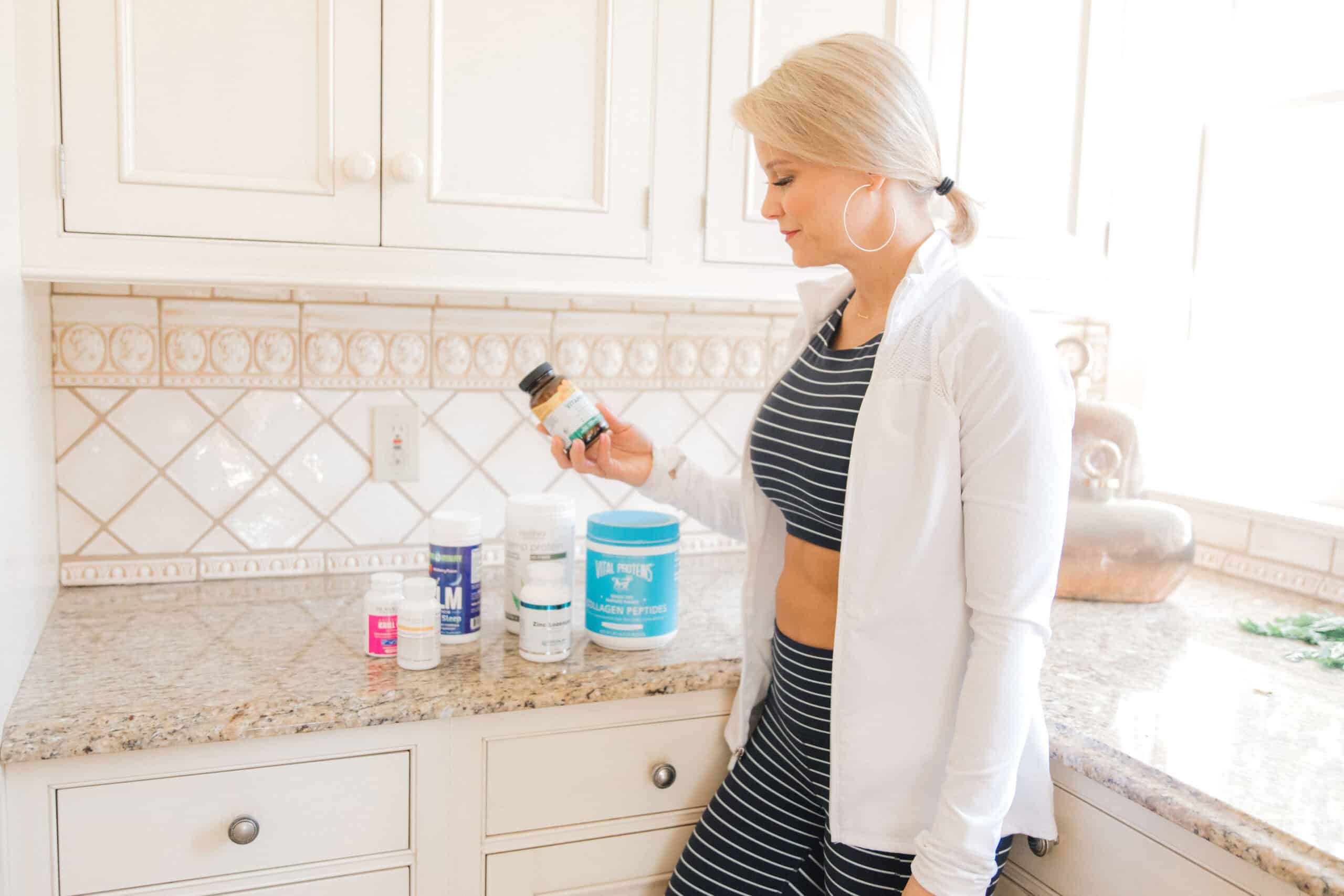Probiotics are live microorganisms that line your digestive tract and support your body’s ability to absorb nutrients and fight infection. These “good bacteria” are used to prevent and alleviate many different conditions but particularly those that affect the gastrointestinal tract. In fact, there are actually 10 times more probiotics in your gut than cells in your body! Probiotics have been shown to help regulate digestion.
If you don’t have enough probiotics, the side effects can include digestive disorders, skin issues, candida, autoimmune disease, and frequent colds and flus.
By adding more probiotic foods into your diet, you could see all of the following probiotics benefits:
- Stronger immune system
- Improved digestion
- Increased energy from production of vitamin B12
- Better breath because probiotics destroy candida
- Healthier skin, since probiotics naturally treat eczema and psoriasis
- Reduced cold and flu
- Healing from leaky gut syndrome and inflammatory bowel disease
- Weight loss
When people first started to learn how important probiotics are for proper digestion, elimination, and overall good health, many nutritional supplement manufacturers jumped on the bandwagon and flooded the market with probiotic products that may very well be worthless. The problem is that most of the beneficial bacteria in these products probably don’t survive long enough to reach you—or, more specifically, your gut.
For instance:
Many probiotics are dead on arrival in your intestines. Because your stomach acids are so powerful, they kill off most probiotics well before they can reach your small and large intestines. And they won’t do you an ounce of good once they’re dead.
Most probiotics can’t survive transportation and storage. Probiotics are extremely delicate—they can’t survive exposure to light, air, or even oxygen. And if you’re taking a brand that needs refrigeration, it has got to be refrigerated 100% of the time. The truth is, by the time most probiotic products leave the manufacturer, get shipped on trucks, and sit in warehouses or on store shelves, the power of the beneficial bacteria has been significantly—and in some cases completely—diminished. Keep probiotics in a cool, dry place out of sunlight. If ordered online, request refrigerated shipping.
Manufacturers overpromise the potency of probiotics. Many may promise you one billion live acidophilus organisms—but only on the date of manufacture! Watch for an asterisk on the packaging. Scamming companies will often claim a certain number of CFUs (Colony Forming Units) on their label, using an asterisk to footnote that this was the number “at the time of manufacture.” Be aware that an amount of probiotics listed “at time of manufacture” doesn’t tell you how many you’ll get when purchased, which can be much lower.
There are a couple of methods for effectively packaging and storing live, active, beneficial bacteria and delivering them intact to the large intestine.
- Controlled-Release Technology. Controlled-release formulas are specially coated to protect the probiotics from gastric acid and ultimately deliver a high percentage of live probiotic bacteria to the intestines. One of my favorite such technologies that both protects the majority of a supplement’s probiotics from stomach acid and also provides optimal release of live organisms throughout the entire digestive tract is called BIO-tract. Available in a number of probiotic supplements.
- Beadlet Technology. This process was developed in Japan and involves enclosing live probiotic bacteria in a small, pearl-shaped beadlet, where the walls of the beadlet are formulated to survive stomach acid and release their contents only when they reach the more neutral environment of the intestines.
Both of these types of delivery systems also ensure an extended shelf life for these probiotic products and don’t require refrigeration. So when looking for a probiotic supplement, choose one that uses either a controlled-release technology or the beadlet formulation and ideally states that refrigeration is not necessary.





